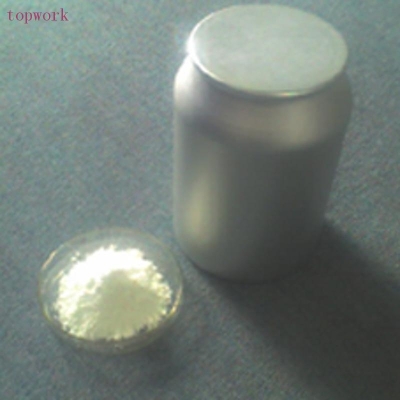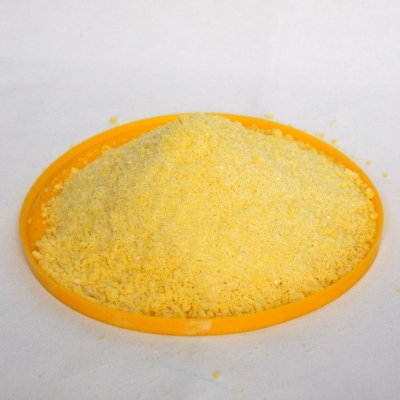-
Categories
-
Pharmaceutical Intermediates
-
Active Pharmaceutical Ingredients
-
Food Additives
- Industrial Coatings
- Agrochemicals
- Dyes and Pigments
- Surfactant
- Flavors and Fragrances
- Chemical Reagents
- Catalyst and Auxiliary
- Natural Products
- Inorganic Chemistry
-
Organic Chemistry
-
Biochemical Engineering
- Analytical Chemistry
-
Cosmetic Ingredient
- Water Treatment Chemical
-
Pharmaceutical Intermediates
Promotion
ECHEMI Mall
Wholesale
Weekly Price
Exhibition
News
-
Trade Service
Yimaitong compiles and arranges, please do not reprint
without authorization.
without authorization.
Introduction: The average weight loss in 68 weeks was 30 pounds, and more than half of the weight loss ≥ 15%.
Recently, the latest research progress of semeglutide weekly preparation for the treatment of obesity in adolescents aged 12~18 years was published
in the New England Journal of Medicine.
"Little fat dun" exceeds 100 million, adolescent weight management, need more "weapons"
According to data from the US Centers for Disease Control and Prevention, obesity has seriously affected adolescent health, and the proportion of obesity in children and adolescents aged 12~19 exceeds 20%.
It afflicts more than 100 million children worldwide, and most adolescent obese people remain obese as adults
.
The number is expected to exceed 250 million by 2030
.
Obesity may also increase the risk of diabetes, heart disease and many other diseases, placing a huge burden
on the body.
In addition, childhood obesity can also lead to self-esteem problems and depression
.
For this population, obesity management guidelines generally recommend weight management through lifestyle changes, but the effect is usually limited and difficult to maintain
in the long term.
If lifestyle interventions alone do not respond well, pharmacotherapy may be considered, but options are limited
.
➤ United States: For patients aged ≥ 12 years, drugs approved by the U.
S.
Food and Drug Administration (FDA) include liraglutide (3.
0 mg, QD), orlistat (120 mg), and phentermine-topiramate;
➤ Europe: For patients aged ≥ 12 years, only liraglutide is approved
.
Explore the therapeutic potential of semeglutide
Semeglutide is a glucagon-like peptide-1 analog that induces weight loss by reducing appetite, helps improve dietary control and reduce energy intake
.
In overweight/obese adults, semeglutide (2.
4 mg subcutaneously once weekly) plus lifestyle interventions was associated with significant weight loss and significant improvement
in cardiometabolic risk factors.
Based on this, Semeglutide Week (2.
4mg) has been approved by the US FDA in 2021 for long-term weight management in patients
with a BMI of ≥ 27kg/m^2 and at least one weight-related disease (such as hypertension, type 2 diabetes or high cholesterol) or BMI ≥30kg/m^2.
So, what is the efficacy and safety of semeglutide for adolescents aged ≥ 12 years obese? A study called Semaglutide Treatment Effect in People with Obesity (STEP) TEENS was recently published
in the New England Journal of Medicine.
68 weeks to lose 30 pounds! Semeglutide weekly preparation is safe and effective for adolescent obesity
This is a double-blind, parallel, randomized, placebo-controlled trial in which overweight/obese adolescents (12~18 years old)
with at least one weight-related comorbidity are recruited.
In a 2:1 basis, participants were randomly assigned to either the drug group and the placebo group, and received either semeglutide (2.
4 mg subcutaneously) or placebo once a week for 68 weeks
on the basis of lifestyle interventions.
A total of 201 participants were randomized (134 participants were assigned to semeglutide and 67 to placebo), 180 (90%) completed treatment, and the mean age of participants was 15.
4 years, the mean weight was 107.
5 kg, and the mean BMI was 37.
0 kg/m^2
.
➤ The primary endpoint was the percentage change in BMI from baseline to week 68;
➤ The secondary study endpoint was the proportion
of ≥5% weight loss at 68 weeks.
1.
The weight loss effect is remarkable
From baseline to week 68, the mean change in BMI was −16.
1% in the semeglutide group and 0.
6% in the placebo group (estimated difference −16.
7%; 95%CI −20.
3~−13.
2;P<0.
001)
。
Fig.
1 Change of BMI from baseline to 68 weeks
➤ Proportion of weight loss of ≥5%: 76% in the semeglutide group and 23%
in the placebo group.
➤ Weight loss ≥ 10%: 62% in the semeglutide group and 8%
in the placebo group.
➤ Weight loss ≥ 15% ratio: 53% in the semeglutide group and 5%
in the placebo group.
➤ Weight loss ≥ 20%: 37% in the semeglutide group and 3%
in the placebo group.
Fig.
2 The proportion of different BMI reductions in the semeglutide group
Excluding body weight, the semeglutide group was significantly better than the placebo group
in terms of improving cardiometabolic risk factors (waist circumference, HbA1c level, lipids, and alanine aminotransferase).
Table 1 Results of the study
2.
Safety is similar to adults
The rate of gastrointestinal adverse events was higher in the smeglutide group than in the placebo group (62 versus 42 percent), and the severity was usually mild to moderate, with a shorter duration (median duration of nausea, vomiting, and diarrhea of 2 to 3 days).
Fifteen (11%) of 133 participants in the semeglutide group reported serious adverse events; Six of the 67 participants in the placebo group (9%) reported serious adverse events
.
Acute gallbladder disease (5 reported cholelithiasis and 1 complicated by cholecystitis) in 5 (4%) in the semeglutide group and cholelithiasis
in no patients in the placebo group.
An increase in amylase and lipase levels in the semeglutide group from baseline to week 68 was observed, but no cases of
pancreatitis were reported.
There were no reports
of acute renal failure, diabetic retinopathy, or severe hypoglycaemia.
Heart rate increased by an average of 1.
2 beats per minute in the semeglutide group and decreased by an average of 2.
3 beats
per minute in the placebo group.
No other clinically relevant findings
were found in biochemical, haematological or growth measurements or pubertal development (Tanner phase).
Summary of this article
In summary, this study suggests that treatment with semeglutide (2.
4 mg once weekly subcutaneously) significantly reduces BMI in adolescent obese patients, with a safety profile similar
to that of adults overall.
Weghuber D, Barrett T, Barrientos-Pérez M, et al.
Once-Weekly Semaglutide in Adolescents with Obesity[J].
NEW ENGLAND JOURNAL OF MEDICINE.
2022 Nov 2.
DOI: 10.
1056/NEJMoa2208601, PMID:36322838







